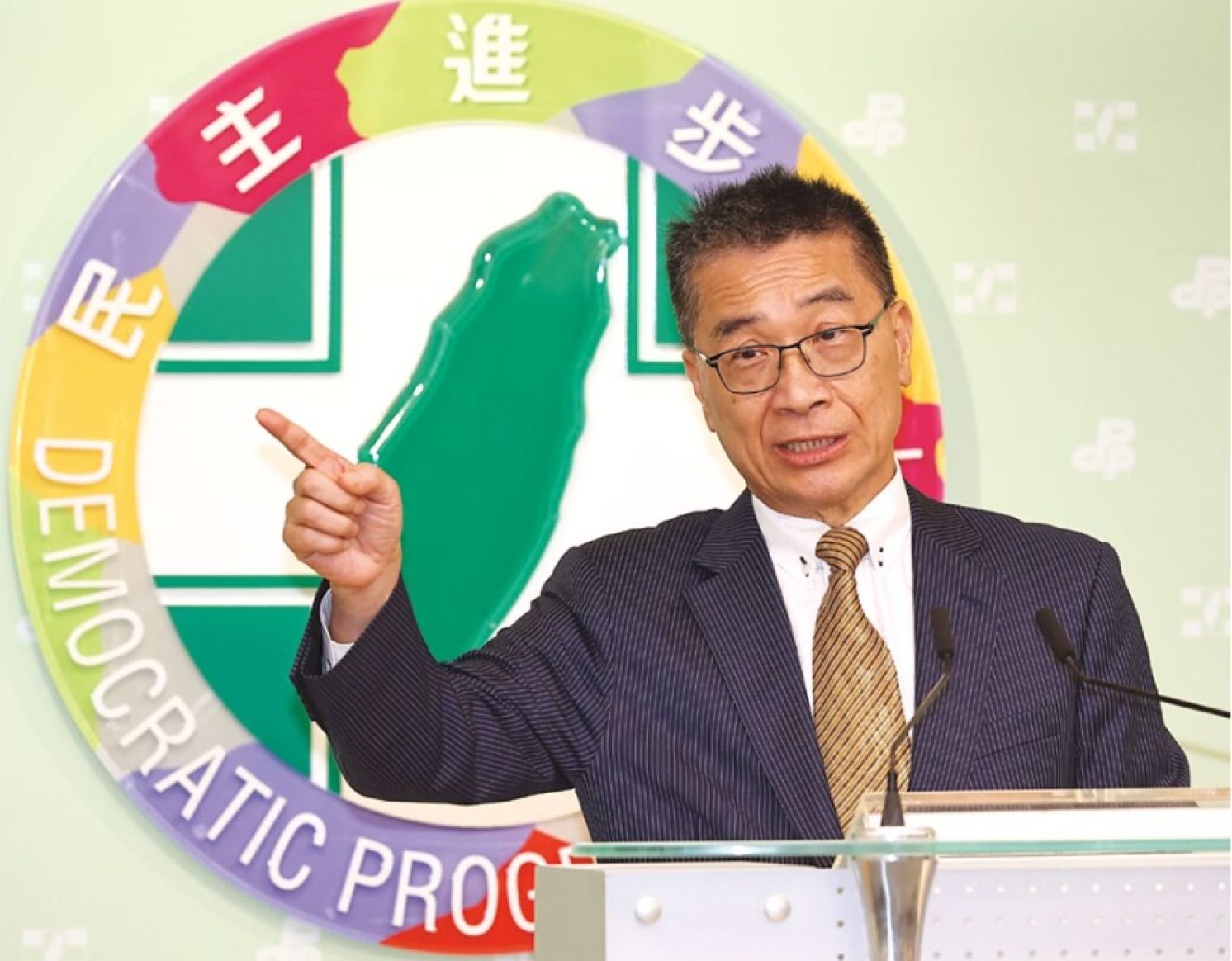
After Month-Long "Recovery," DPP's Combative Nature Re-emerges
By Li Chia-wei, China Times Opinion, September 18, 2025
President Lai Ching-te recently carried out a sweeping reshuffle of presidential office, cabinet, and party personnel in response to the political setback of the mass recall vote. Given the combative nature of the newly appointed Secretary-General Hsu Kuo-yung of the Democratic Progressive Party (DPP), few expected his role would help foster cross-party harmony. As expected, it did not take long before he sparked controversy with remarks such as “Taiwan’s status is undetermined” and “there is no Taiwan Retrocession Day,” tearing apart the façade of “lying low and recuperating.”
It is unclear whether Mr. Hsu was inspired by President Lai’s earlier draft of the “Ten Lectures on National Unity” or whether he sought to pave the way for Lai’s continuation of the series. But what Mr. Hsu voiced is nothing new—it reflects the long-standing historical perspective of the pro-independence camp. Had President Lai not been forced to suspend the “Ten Lectures” before the recall, it is likely that such narratives would have appeared in one of them. From President Lai’s focus on commemorating the 80th anniversary of the victory in the European theater, and attending a related tea gathering, to his low-profile Facebook reference to the “end of the war” while ignoring the 80th anniversary of the Republic of China victory in the Second Sino-Japanese War, it is not hard to see the divergence between the “golden grandson of Taiwan independence” and R.O.C. historical narrative—and equally easy to see that Lai and Hsu share the same DNA.
When pressed on whether Retrocession Day should remain a public holiday, Mr. Hsu limited his reply to the administrative level, casually responding with “govern according to law,” echoed by the cabinet spokesperson. Yet on the higher-level issue of the ROC’s historical narrative and its relationship with Taiwan, President Lai’s team has merely postponed revealing its pro-independence stance. This signals that clashes between ruling and opposition parties will not cease.
DPP Legislator Wang Shih-chien offered a clever response, suggesting that national affairs are complex and deeper issues are not urgent. His implication was clear: the Lai administration has misplaced its priorities, focusing on divisive identity politics rather than pressing livelihood concerns. This highlights the administration’s failure to learn any lessons or engage in self-reflection following the political defeat of the recall.
It should not be forgotten that backlash after just the fourth of President Lai’s “Ten Lectures” was enough to reverse the momentum of the recall. A narrow, self-referential independence narrative only intensifies internal strife, undermining unity. Meanwhile, real concerns—livelihood issues and the impact of global changes on Taiwan—were drowned out in heated online debates and street rallies. Yet extreme online rhetoric failed to grow hatred or suppress genuine public dissatisfaction, which instead manifested in the recall’s resounding 32–0 outcome.
From President Lai’s post-recall personnel adjustments, there is no sign of reassessment or adjustment in governance strategy. Many ideologically driven ministers retained their posts. What the public needs—genuine “lying low and recuperating”—appears instead to be the administration’s own breathing space, a delaying tactic to regroup.
But Mr. Hsu has proven too combative to hold back. Barely one or two months after the twin lessons of July 26 and August 23, his true colors are already on display. If President Lai truly seeks a cooling-off period, why does he not rein in Mr. Hsu’s rhetoric? If President Lai remains silent, then it is tantamount to giving free rein to a loose cannon—or even endorsing him. Under such circumstances, how could cross-party cooperation in government and legislature possibly improve? Or perhaps President Lai has no interest in keeping up appearances and intends to continue pursuing his Taiwan independence agenda.
The American Institute in Taiwan (AIT) recently reignited the “Taiwan’s status undetermined” argument through media channels—timed intriguingly during ongoing U.S.-China tariff negotiations—suggesting Taiwan may once again become a bargaining chip in great-power rivalry. Yet the ruling party’s secretary-general responded reflexively, almost gleefully, in wishful thinking, showing no lessons learned from the August outcome of U.S.-Taiwan trade talks. Mr. Hsu may be overjoyed, but for ordinary Taiwanese citizens, the mood is one of deep concern.
From: https://www.chinatimes.com/opinion/20250918004231-262104?chdtv